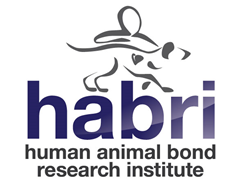
HABRI logo
“This knowledge will provide the necessary groundwork for future research and practice, which we hope will improve treatment and quality of life for children living with ADHD.”- Dr. Georgitta Valiyamattam
WASHINGTON (PRWEB)
November 01, 2021
The Human Animal Bond Research Institute (HABRI) announced today it has awarded a grant to GITAM (Deemed) University for a new study that will investigate the impact of pet ownership and human-animal interaction (HAI) on overall social functioning including social attention in children with Attention-Deficit/Hyperactivity Disorder (ADHD). This study aims to fill a critical gap in the current literature by uncovering the potential benefits of HAI on core deficit areas in ADHD.
“This project brings together an international team of experts to undertake a comprehensive examination of social attention and emotion processing in neurotypical children and children living with ADHD,” said Dr. Georgitta Valiyamattam, GITAM University, the study’s Principal Investigator. “We hope to answer a key question – do foundational social skills in ADHD have the potential to be impacted by animal-assisted interventions? This knowledge will provide the necessary groundwork for future research and practice, which we hope will improve treatment and quality of life for children living with ADHD.” Along with Dr. Valiyamattam, the team comprises Dr. Harish Katti, Dr. Jessica Taubert, Dr. Vinay Chaganti and Dr. Virender Sachdeva.
A substantial body of research describes social attention and emotional recognition deficits to human faces in ADHD. This project will study the impact of pet ownership on children with ADHD to determine whether HAI may enhance social attention and emotional recognition and modulate overall social functioning. State-of-the-art eye tracking technology and rigorous statistical approaches will be deployed to compare attention towards human and nonhuman faces. Researchers will also investigate the recognition of facial expressions. The research team anticipates that children with ADHD will show greater attention and emotion recognition capabilities for animal faces as compared to human faces. The focus on uncovering the visual mechanisms regarding HAI may also contribute to virtual applications of animal-assisted interventions for ADHD. Children with ADHD who have companion animals are also expected to have better social functioning and quality of life, with greater levels of pet attachment being associated with better outcomes overall. Results may provide useful insights both into the effectiveness of HAI and pet ownership for ADHD and the potential ways in which these effects can occur.
“There is ample HAI research supporting companion animal interventions for improving social skills for children with autism spectrum disorder, but not among those with ADHD, and this study has the potential to bridge that gap,” added Steven Feldman, President of HABRI. “HABRI is proud to be supporting this important project and this international research team. HABRI has never before funded a project based in India and is excited to see the field of HAI continue to expand internationally.”
About GITAM University
GITAM University is a private deemed university in Visakhapatnam, India, with additional campuses at Hyderabad and Bengaluru. Founded in 1980, GITAM provides excellent avenues for teaching, research and consultancy across disciplines including sciences, humanities, engineering, management and law. The Visakhapatnam campus also houses the well-equipped hospital and medical research wing of the University-the GITAM Institute of Medical Sciences and Research. For more information, please visit https://www.gitam.edu/.
About HABRI
HABRI is a not-for-profit organization that maintains the world’s largest online library of human-animal bond research and information; funds innovative research projects to scientifically document the health benefits of companion animals; and informs the public about human-animal bond research and the beneficial role of companion animals in society. For more information, please visit http://www.habri.org.
Share article on social media or email:

